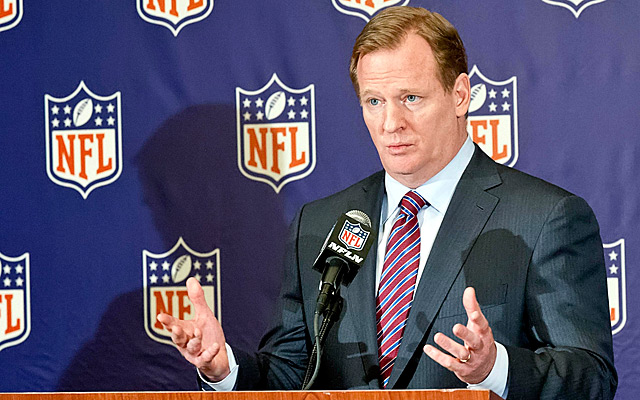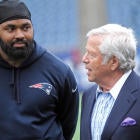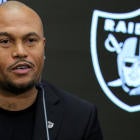
A federal judge has approved a plan that brings the NFL and more than 5,000 former players one step closer to a settlement in a concussion lawsuit that could end up costing the league more than $1 billion over 65 years.
Senior U.S. District Judge Anita Brody had twice sent the deal back to lawyers because there were concerns that the original $765 million settlement proposal might run out. Negotiations didn't increase the $765 million plan, but the NFL agreed to uncapped payments in the revised plan. Additionally, the plan removes the limit on how much can be spent on medical monitoring.
According to the New York Times, as part of the new deal, the league insisted that all retired players -- not just those suing the NFL -- be covered by the settlement as a means of fending off future lawsuits.
But some 200 players opted out, which means they can still sue the league at a later date. (You can ready more about what it means to "opt out" here.)
Additionally, via the Associated Press, this means that the NFL may never have to disclose what it knew about the risks and treatment of concussions.
"Retirees and their families will be eligible for prompt and substantial benefits and will avoid years of costly litigation that — as Judge Brody's comprehensive opinion makes clear — would have an uncertain prospect of success," NFL general counsel Jeff Pash said in a statement.
Meanwhile, critics of the new deal contend that the diseases now covered remain too narrow, and many players would receive a fraction of the payout promised in the settlement once age and time in the league were taken into consideration. The new settlement would pay players, on average, $190,000. The payouts could reach $1 million to $5 million for players diagnosed with Parkinson's disease or Lou Gehrig's disease in their 30s or 40s, or for deaths involving chronic brain trauma.
Critics also contend that even $1 billion in payouts is getting off light for the NFL, which has annual revenues of more than $10 billion.
"From a business point of view, (the NFL has) ... avoided what may have been the biggest risk to their continued prosperity," Andrew Brandt, director of the sports law program at Villanova University law school, told the AP. "Removing this as a threat is extraordinary," he said.
No payments will be made until all appeals have been exhausted.





















